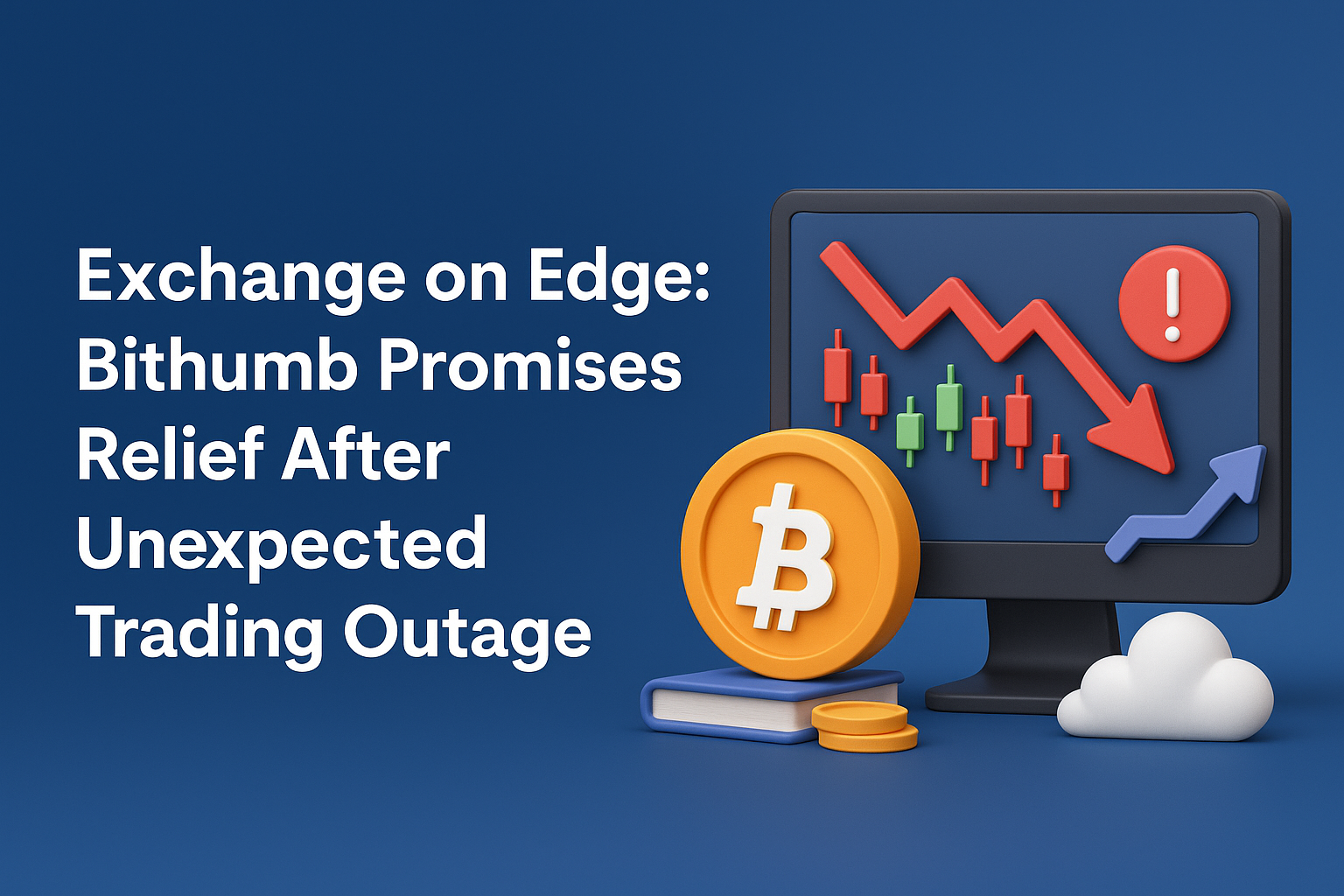On September 2, South Korea’s cryptocurrency sector faced a major shock when Bithumb, one of the country’s largest and most influential digital asset exchanges, encountered a serious technical failure. For nearly 100 minutes, the order book was unresponsive, trading activity froze, and customers were unable to execute buy or sell orders.
For many active traders, this was not just a technical inconvenience—it created real financial risks in a highly volatile market where prices can swing dramatically in a short span of time. The incident quickly drew attention from both the crypto community and media outlets, as Bithumb holds a significant share of South Korea’s crypto trading market.
Cause Identified: Internal Error, Not Hacking
Following the restoration of services, Bithumb issued an official clarification to address speculation. The company emphasized that the outage was not the result of hacking, cyberattacks, or external threats. Instead, the disruption stemmed from a computer system malfunction within its own infrastructure.
To limit the impact, the exchange’s technical team moved swiftly, launching emergency system maintenance and restoring services as quickly as possible. While trading eventually resumed, the downtime had already caused frustration across the platform. Many users reported losses or missed trading opportunities, sparking a wave of criticism.
Exchange Reassures Customers With Compensation Plan
To calm mounting concerns, Crypto Exchange Bithumb Promises to Compensate Customers After 100 Min. Outage became the company’s official stance. On September 3, Bithumb confirmed it would fully compensate affected customers for losses related to the disruption.
The exchange stated that claims will be reviewed in sequence and processed carefully, with payouts expected to be completed within one month. This compensation pledge demonstrates accountability at a time when traders are increasingly demanding stronger consumer protections from exchanges.
Broader Issue: System Reliability in South Korea’s Exchanges
Although Bithumb’s compensation plan provided immediate relief, the outage highlights a much larger concern—the reliability of South Korea’s crypto exchanges. From 2018 to 2024, the nation’s top five fiat-to-crypto trading platforms reported 89 system disruptions in total. Of those, Bithumb was responsible for 41 incidents, raising questions about its overall technical stability.
Adding to the problem, there are no standardized rules across the industry for how or when exchanges should compensate users during service failures. As a result, customers remain exposed to significant risks, with compensation often determined by individual company policies rather than consistent regulations.
Looking Ahead: Stability, Trust, and Transparency
Bithumb has stated that it will conduct a detailed investigation to identify the root cause of the malfunction. The company also committed to strengthening its infrastructure, introducing stricter system monitoring, and implementing safeguards designed to reduce the likelihood of similar incidents in the future.
While the compensation plan helps ease immediate concerns, Bithumb’s long-term credibility will depend on whether it can deliver reliable, uninterrupted service. Traders expect more than refunds—they want platforms that can withstand heavy trading volumes and protect them from unexpected technical breakdowns.
Ultimately, Bithumb’s ability to pair technical resilience with transparent communication will determine its future reputation. For now, its decision to compensate customers offers reassurance, but the incident serves as a strong reminder to the entire crypto industry about the importance of accountability, preparedness, and operational excellence.



